- Home
- Greg Keyes
Dawn of the Planet of the Apes Page 10
Dawn of the Planet of the Apes Read online
Page 10
He saw one of the big caterpillars looking at him. They had found the big caterpillars at the zoo. He had wondered why Caesar freed them, along with the apes. They couldn’t sign, and they were stupid. Go away, caterpillar, he signed. But of course it just stared at him. Disturbed, he climbed away from it, hoping he didn’t start seeing things again.
A bit later he found Caesar, and felt excited when Caesar approached him. He quickly supplicated.
Koba, Caesar said. My band is smaller now. I need fast, strong apes with me.
I’m with you Caesar.
It’s dangerous. Some have died.
Humans have done much bad to me, Koba responded. Happy to fight them.
We don’t fight them, Caesar said. We trick, we avoid. We save apes.
He waved at the hundreds in the troop.
Koba understands, Koba said, slightly disappointed. But Caesar was the leader. Caesar was smart. He knew what was best for them all.
* * *
David woke at four, as usual. He heard sirens in the distance, and looked out his bedroom window. All he saw was San Francisco, in darkness. It wasn’t all that unusual to hear sirens now and then, but in the last few days and nights the number and frequency of them had multiplied. Things were definitely getting more than a little crazy. He had covered a triple homicide in Chinatown the night before, which had turned out to be a sort of robbery gone wrong. The rumor had gotten out that monkey penis could cure the virus, and so Chinese apothecaries were being ransacked.
Three groups had shown up at the same place and had a shoot-out.
Over monkey penis.
He went to the living room and flipped on the TV, where they were rehashing the riot that former Chief of Police Dreyfus had managed to quell. Then they started showing clips of him from various local talk shows. He was always urging calm, and he came off as smart, deliberate, and in control. Mayor House, by contrast, seemed to be steadily losing it. The polls were starting to look very good for Dreyfus.
He turned off the TV and picked up his tablet to check his messages.
Unsurprisingly, there was an email from Clancy. He had tried to call her the day before, to make sure she was okay, but then he realized she probably didn’t have reception up there.
What was surprising was the content of the mail. He read it, then read it again, wondering if it was some sort of prank, but it seemed pretty serious—and while Clancy was playful, she wasn’t actually the practical joker sort.
Okay, he thought, let’s have a look at this.
There were really two parts to what she had sent. One was a brief essay describing the relationship between Gen Sys and Anvil, and her suspicion that the cover-up Gen Sys had begun was still going on under Anvil. The other was a list of the names of the encrypted files she had come across. Ol86G, AgniP3, Chl223, RV113, Teetot, AH1/2F.
None of them meant anything to him, nor did an Internet search turn up anything that looked as if it might be a lead.
A quick search established the basic facts of the matter, however. Anvil and Gen Sys were indeed owned by the same parent company. After searching “Gen Sys + Apes,” he found an article that was eight years old. It was about a shareholder’s meeting in which the results of a drug trial were to be released, apparently with much fanfare. The drug, ALZ112, was supposed to be a cure for Alzheimer’s, and they had tested it on a chimpanzee. The chimp in question had shown considerable cognitive improvement, and was to be introduced to the public as proof that the drug was effective at helping the brain build new cells and repair itself.
Bizarrely, the chimp had gone berserk, broken into the meeting room, and been put down by a security guard. The drug was deemed too dangerous for further trials, and apparently that was that.
He leaned back.
That was that. Except that Gen Sys had been trashed by apes in the lead-up to the whole Monkeygate thing. And now Anvil seemed to be trying to cover something up, as well. And Anvil was in the employ of the City of San Francisco.
From his investigation of hijinks in appropriations at City Hall, he was already convinced that there was a lot more money moving around there than there should be if everyone was on the up-and-up. What if the mayor was being bribed to cover something up? What could be that big?
This was definitely worth checking out. Everyone was focused on the plague. This story could be very big—and it could be all his.
* * *
Talia wasn’t sure how long she had been on her feet, but they were numb. She had lost count of the hits, and had been admitting people all day. They just kept coming, one train wreck after another.
Her prediction to her father had proven all too true—almost all of the staff were dealing with the retrovirus, leaving her and a handful of others to deal with gun- and knife-wounds, vehicular casualties, and the like. What she was coming to realize was that that sort of morbidity wasn’t remaining at the rate she was used to—it was rising. Most particularly she was seeing an increase in assault victims, people with wounds from broken glass, bats, fists, and feet. As the local death toll from the virus hurdled over a thousand, everything else was ratcheting up, as well.
Some of the assault injuries came from their own waiting room, which was now being used for triage. Those who had tested positive for the disease were escorted to one bus, those who weren’t symptomatic went to another. The sick were then driven to isolation camps, while everyone else went to quarantine because they had potentially been exposed.
Security was being provided by National Guardsmen. Talia found it unnerving to look out at the waiting room and see men holding assault rifles, but she knew things would be far worse without them.
“Somebody’s been tweeting that we’ve got the goddamn cure again,” Randal said. They were patching up an eighteen-year-old boy who looked as if he’d met the business end of a switchblade. “We’re going to get mobbed, like St. Francis did.”
“They didn’t have National Guard at St. Francis,” she pointed out, stitching up an intestine.
“Yeah, but people’re just getting more and more desperate,” he said. “There was a kid in here yesterday—you missed it. His mom had given him some kind of herbal medicine, thinking it would cure him. I still don’t know what it was, but he was convulsing when she brought him in. He was in acute renal failure. Died on the table. And of course the mother broke down, started screaming about how our western medicine was to blame. It was a mess.”
“Jeez,” she said. She noticed how tired Randal looked, and figured she probably looked worse. “That’s too bad. He would have died anyway, but this way she blames herself.”
“No, she blames us,” he said. “Weren’t you listening?”
She shrugged. “You really can’t expect a mother to be rational two minutes after her son has died. They usually find someone to blame.”
“How about the quack who sold her the medicine?”
“That would be way too logical,” she said. “Okay, thanks—I think I’ve got this one now.”
“Right,” Randal said. “I’ll go see what’s next.”
As he was getting up, he suddenly sneezed. Talia looked up and saw that his mask was spattered red.
“Oh, God, Randal,” she said.
9
For a moment, Dreyfus thought Maddy was going to slap him.
He could see it in the set of her shoulders, the thin line of her lip. After twenty years of marriage he knew her that well. She was trying to decide.
Instead, she wrapped her arms around him, and hugged him so hard it almost hurt.
“You frigging idiot,” she murmured.
“Look,” he said, “I had no intention of getting into a situation. I just went down there to make an appearance, and things happened.”
She pushed him back and crossed her arms.
“You never do intend to get into situations,” she said. “Yet somehow you always do. God, I thought all of this was over. Twenty years, every day wondering if I was going to have to go ident
ify your body, wondering how I would tell the kids. You finally leave the job—and now this! This is an addiction. You need help.”
“I’m not a cop anymore,” he said. “That doesn’t mean I don’t live in the world. I’m trying to make a difference, here.”
“You weren’t even wearing a mask,” she said. “You might have caught it. This thing.” She waved her arms helplessly, as if the virus was even now all around them.
“If I did, I didn’t bring it home,” he said. “I scrubbed down carefully at the office. Head to toe, and changed clothes. As for the respirator—I’m the ‘don’t panic’ guy, remember? The mayor looks terrified. He wears one of the damn things. I have to be the other guy.”
She looked like she was going to continue, but instead she nodded.
“I know you do,” she said. “I know you do.”
“Hey, Dad, you’re home.”
Dreyfus looked beyond his wife to see John, his youngest.
“Hey, fellah,” he said. “How’s my boy?”
“I’m okay, Dad,” he said. At twelve, John was already nearly as tall as Dreyfus. He had his mother’s cheekbones and his father’s blue eyes, but there was a sparkle there that was all his own, that came from no place but John.
“That was some crazy stuff you did on TV,” John said.
“You saw that, hmm? I hope you weren’t worried. I was never in any real danger, you know.”
“It kind of seemed like you were.”
“What, is the whole family going to lecture me now?”
“I doubt it,” Maddy said. “Edward is upstairs studying with Ellie Song. As long as he’s doing that, he’s oblivious.”
“Yeah,” John said, “he’s been trying to get her to ‘study’ with him for months.” He made air quotes with his fingers.
“I hope they’re studying with the door open,” Dreyfus said.
“It’s open, dear,” Maddy said. “Only by a few inches, but open.”
“What do you think, John, should I go up and check on the situation?”
“I think he would pee his pants if you did,” John said. “So—yeah.”
Dreyfus mussed his son’s hair.
“How about you and I shoot a few hoops, instead?”
“Really?”
“Well, you’re out of school, and I’m taking the afternoon off. It’s been a while since it was just me and you.”
“Yeah, okay,” John said. “Just let me change clothes.”
* * *
That night, Maddy reached over for him, and they made love. It was the first time in a while. Life, work, two children—they weren’t kids having sex in the back seat of his car nowadays. Sometimes Maddy seemed more distracted than anything.
But not tonight. Tonight there was an intensity, almost a desperation. His body had no secrets from her anymore, and he loved the familiar feel of her, the sound she made when he touched her just so. He remembered the first time, how exciting her body had been to him, how it had been like uncovering a treasure. Now, years later, he still felt the same way.
When it was over they lay a long time without talking, tracing each other with their fingers.
“I love you,” he said, finally. “Thank you so much for staying with me all of these years.”
“I wouldn’t know what else to do.” She sighed. “And I love you, too. Idiot.”
“Thanks,” he said.
She snuggled onto his chest.
“You looked good,” she murmured.
“Hmm?”
“On TV,” she said. “You looked really good. Brave.”
“Handsome,” he added.
“Well, so-so,” she said. “But you looked strong. Like a mayor.”
“Mayor? Hell, why not a president?”
“Or maybe just an old cop with delusions of grandeur,” she said. “Now go to sleep.”
* * *
“You’re going to love this,” Patel told him when he came into the office the next day.
“Well, if you have love,” Dreyfus said, “give it to me.”
“We still haven’t gotten to the bottom of why House is using outside contractors, but apparently one of his aides loosens up a lot after a few drinks with a pretty girl.”
“I don’t want to know who this pretty girl is, do I?”
Patel shrugged. “I don’t know her. Someone Karen hired. Won’t be an issue.”
“Okay. So what did he get loose about?”
“For one thing, there are a lot more apes up there in the woods than we’ve been led to believe. It’s not ten or twenty. It’s hundreds.”
“Hundreds?” Dreyfus frowned. “Really?”
“But that’s not even close to being the best part.” Patel paused for dramatic effect. “They can’t find them.”
“They can’t find hundreds of apes? Well, it’s not so odd that they would want to keep it quiet, then. If hundreds of killer apes were on the loose and I couldn’t find them, I wouldn’t want anyone to know about it, either.”
“Yup,” Patel said triumphantly. “I figure we hold a press conference at the entrance to the park. He accused you of weakening the police force, but here you can demonstrate the total incompetence of his contractors. More than a week, and not a single ape captured or killed.”
“Hold it,” Dreyfus said, staring at the newsfeed.
The death toll in San Francisco was now over ten thousand.
“Why is House worried about monkeys in the woods, when this is going on?”
He stared at the screen. “What does he know that we don’t?”
“We can use this,” Patel said.
“Uh-uh,” Dreyfus said. “There’s another shoe, and I want to hear it drop before I get mixed-up in this. No press conference.”
He looked at Patel’s disappointed expression.
“Leak it instead,” he said.
* * *
Caesar felt uneasy as he led his group to their rendezvous with Rocket.
The chimpanzee had been leading the humans off over the mountain again, trying to make it appear as if the troop was farther and farther away from the city. It seemed to be working—although they still guarded the forest edge, no human hunters or their flying machines had been seen in the last day or so.
He spotted Rocket up ahead, at the clearing where they had agreed to rendezvous. He swung over to meet with him. The other chimp seemed excited.
Went far, Rocket told him. Over mountain, much farther.
And?
More forest. Trees smaller. Human roads, but no machines.
Caesar tried not to show his disappointment. He had hoped the deep stands of redwood continued on, so they could move farther, deeper—away from their enemies altogether. Still, if there was more forest in that direction, and fewer humans, it might be worth moving the troop, even if the trees weren’t as large.
The longer they stayed in the same general location, the sooner they would be found. They still had wounded, but most had either died or grown stronger. More kinds of food had been discovered—mushrooms, nettle, bark, berries, insects, and salamanders in the rich black dirt that moldered on the large limbs of the trees. Small animals to hunt. Even honey had been discovered in one tree.
But they were eating it all, and fast. Soon enough they would have to move.
Yet he knew deep inside that it was in the tall, tall trees that they belonged.
In the direction of the sunrise there were more people. In the direction the sun went down there was open country and water, and a road that cars still traveled on. Beyond the mountain might be their only choice.
Rocket still seemed excited.
What? Caesar asked.
We found something, Rocket said. I’ll show you.
Caesar gave his assent, and two bands started off together. They went back toward the mountain, to a human trail. There, in the middle of it, were colorful piles of mangos, bananas, durian, mangosteens, avocados, grapes, peaches, and a variety of other foods.
Caesar f
roze on the branch.
Stop, he hissed.
They did, but most of the chimps were having trouble containing themselves. All of the fruit they had managed to procure had gone to feed the orangs and gorillas, who needed it most. But fruit was good, and it had been a long time since they had eaten any.
Nevertheless, something wasn’t right. Fruit didn’t just appear like this. Someone had put it here. So they would find it.
He studied the scene a little more carefully and noticed a littering of skins and rinds.
Did you go down there? He asked Rocket.
Rocket looked a little embarrassed, and nodded.
So they hadn’t been able to resist after all. But they hadn’t been killed, or even shot at. And, in fact, he didn’t think there were any humans anywhere near. So what were the humans after?
Then he understood. They were hoping he would take the food and bring it back to the troop. They would follow him.
But what made the humans think they could follow them through the trees any better now than earlier?
Suddenly Koba was there beside him.
Caesar let Koba go, he signed and held out his hand.
Caesar hesitated only a moment, then swiped it.
Koba made another half-circle around where the fruit lay. He seemed to be looking for something in the trees. After a moment he pointed. There was something attached to the tree above the fruit. It was stripped green and brown, but looked like a machine. Koba picked up a heavy branch, climbed up behind the thing, and hit it. It made a metallic crunching sound.
The bonobo hit it several more times before he seemed satisfied. Then he gestured for them to all come.
Shows us little, Koba explained.
Caesar remembered, then. Will had had a thing that made moving pictures of him. It looked different from the thing Koba broke, but it made sense. There had been things like this in the sanctuary and at Gen Sys, too, all designed to spy on the apes. The humans could watch them without being here.
But even if they could see them take the fruit, how would they know where they took it?
Good, Koba, he said. Smart.
Koba seemed pleased by the praise, but it also seemed as if he was trying to hide it.
The others started coming down as Caesar once again approached the fruit.

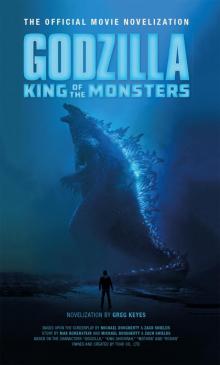 Godzilla
Godzilla Godzilla vs. Kong
Godzilla vs. Kong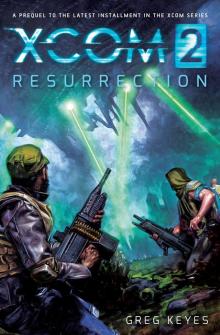 XCOM 2- Resurrection
XCOM 2- Resurrection Independence Day: Crucible (The Official Prequel)
Independence Day: Crucible (The Official Prequel)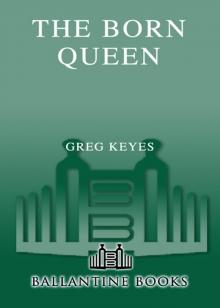 The Born Queen
The Born Queen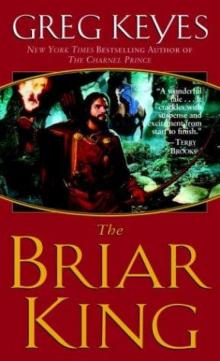 The Briar King
The Briar King Star Wars The New Jedi Order - Dark Journey - Book 10
Star Wars The New Jedi Order - Dark Journey - Book 10 Star Wars: New Jedi Order Book 8b: Emissary of the Void
Star Wars: New Jedi Order Book 8b: Emissary of the Void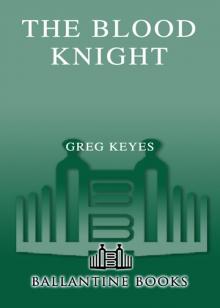 The Blood Knight
The Blood Knight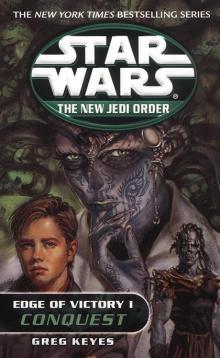 Star Wars - Edge of Victory - Book 1: Conquest
Star Wars - Edge of Victory - Book 1: Conquest Edge of Victory 2 Rebirth
Edge of Victory 2 Rebirth Lord of Souls: An Elder Scrolls Novel
Lord of Souls: An Elder Scrolls Novel The Born Queen tkotab-4
The Born Queen tkotab-4 Rebirth: Edge of Victory II
Rebirth: Edge of Victory II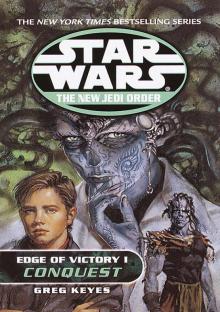 Conquest: Edge of Victory I
Conquest: Edge of Victory I Emissary of the Void
Emissary of the Void The Blackgod
The Blackgod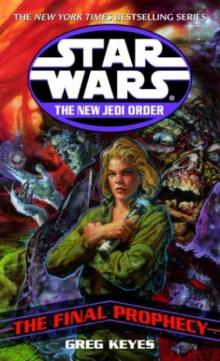 Star Wars The New Jedi Order - The Final Prophecy - Book 19
Star Wars The New Jedi Order - The Final Prophecy - Book 19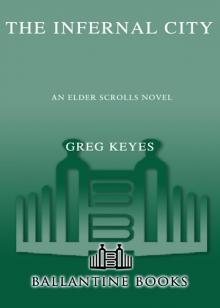 The Infernal City
The Infernal City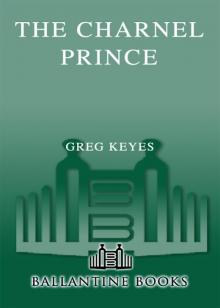 The Charnel Prince
The Charnel Prince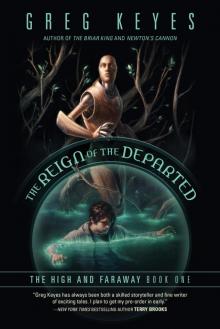 The Reign of the Departed
The Reign of the Departed Lord of Souls es-2
Lord of Souls es-2 Chosen of the Changeling
Chosen of the Changeling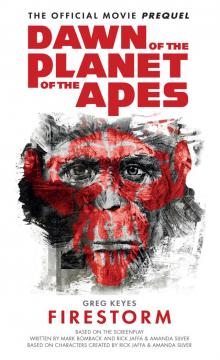 Dawn of the Planet of the Apes
Dawn of the Planet of the Apes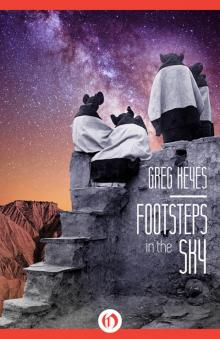 Footsteps in the Sky
Footsteps in the Sky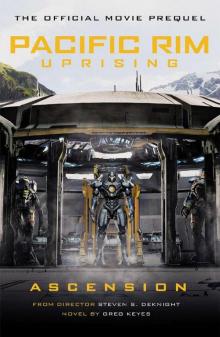 PACIFIC RIM UPRISING ASCENSION
PACIFIC RIM UPRISING ASCENSION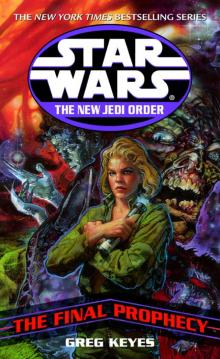 The Final Prophecy: Edge of Victory III
The Final Prophecy: Edge of Victory III